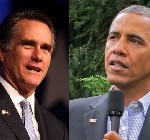As the campaigns for the Presidential election in the U.S. wind down, the media and the international community are beginning to pay attention to the almost equally important elections for the House of Representatives (much like our Lok Sabha) and the Senate (similar to our Rajya Sabha).
While elections to the two Houses of the U.S. Congress are important in their own right, they have acquired even greater significance in the context of the Congressional paralysis of the last two years, uncannily like the BJP inspired paralysis of our Parliament for roughly the same period.
In the U.S. system, all 435 voting seats in the House are up for re-election every two years. The 100-member Senate on the other hand rotates one-third of its members for re-election every two years, which makes for greater stability. Elections are also being held for 11 State Governors (equivalent to our Chief Ministers).
When Barack Obama first became President he had, like President Clinton in 1992, a House and Senate with a Democratic majority. Both Presidents lost the House to the Republicans in mid-term elections. Clinton faced a hostile Republican House which even tried to impeach him in the infamous Monica Lewinsky case. Obama has been confronted by an even more hostile and recalcitrant Republican party determined not to concede even an inch on any issue, but especially refusing to consider the most minor rise in taxes despite a ballooning annual budgetary deficit of over one trillion dollars.
Stripped of all the electoral rhetoric this election is about whether the wealthy in the United States can be asked to pay taxes at the same if not slightly higher rates as the middle class.
Democrats currently have a 53 to 47 majority in the Senate, with 23 of their seats up for re-election, while the Republicans have only 10 open seats. To take back the Senate the Republicans need to retain their 47 and win four more. In case Romney wins the Presidency, they can have a majority with only three new winners, because the Vice President, who chairs the Senate, has a casting vote.
It is most unlikely that the Republicans can grab any of the Democratic vacancies since they are coming up in mostly Democrat-leaning States Moreover Republican challengers have alienated the women’s vote by opposing the right to abortion and free contraception and by making multiple offensive remarks about rape being usually consensual, much like our Khap Panchayats in Haryana.
No significant change is predicted in the House where the Democrats need 25 additional seats to take back the House from its present Republican majority. According to the latest polls the Democrats may gain 10 seats at the most. Therefore if President Obama is re elected the current gridlock is expected to continue.
An early crisis could come in the beginning of the next year when automatic cuts of 10% in the defence and other budgets will kick in along with the lapsing of the Bush era tax cuts for the wealthy. The U.S. is still engaged in a fighting war in Afghanistan, considering action against Iran and confronted by the Syrian crisis – all making it hard to see the logic of automatic cuts in the defence budget.
Indians are especially interested in the U.S. gubernatorial races because two, Bobby Jindal in Louisiana and Nikki Haley in North Carolina, both Republican, are of Indian origin. At present, 29 of the 50 American States have Republican Governors, 20 are Democrats and one is Independent. Here again not much change is predicted but unlike our Chief Ministers American Governors have wide powers and usually work harmoniously whatever the political colouring of the Presidency or the Congress.
But they do play an important role in Presidential and Congressional elections because they rally the vote in their respective States.
The much scrutinized electoral races in the United States closely reflect the split down the middle in the political affiliations of the people, and yet, or perhaps because of this split, no significant change is expected to take place. President Obama is likely to be re-elected. The Senate and House are expected to retain their respective Democratic and Republican majorities and even the State leaderships are likely to remain unchanged.
Maybe the secretive 18th Party Congress in China later this week may throw up more surprises.
Neelam Deo is India’s former ambassador to Denmark and Ivory Coast, and served in Washington and New York. She is the director and co-founder of Gateway House: Indian Council on Global Relations.
This article was originally published by Business Standard, here.
© Copyright 2012 Gateway House: Indian Council on Global Relations. All rights reserved. Any unauthorized copying or reproduction is strictly prohibited.


